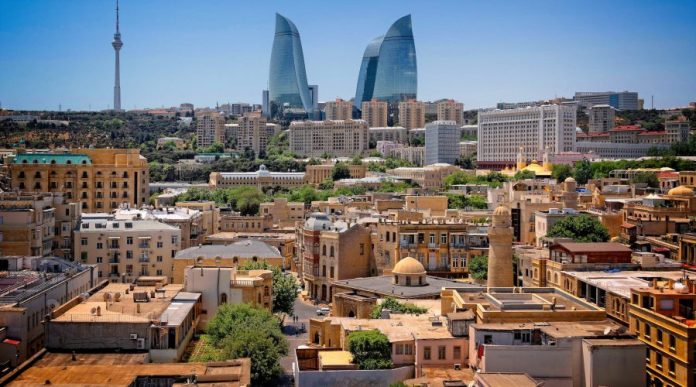Azerbaijani President Ilham Aliyev has refused to meet with EU leaders for talks on Armenian-Azerbaijani relations. Instead, Baku expressed support for more regionally oriented negotiating formats to resolve disputes in the South Caucasus.
On 4 October, Azerbaijani President Ilham Aliyev cancelled a previously scheduled meeting with Armenian Prime Minister Nikol Pashinyan, European Council President Charles Michel, French President Emmanuel Macron and German Chancellor Olaf Scholz. The meeting of the representatives of the states was to take place on 5 October within the framework of the European Political Community summit in Granada (Spain). The Granada summit was a long-awaited event in the context of the Armenian-Azerbaijani peace talks, especially against the background of the sharp escalation of the conflict in Karabakh.
Hikmet Hajiyev, Aliyev’s foreign policy adviser, said that Baku refused to participate in the summit because of France and Germany, which rejected Azerbaijan’s proposal to include representatives of Turkey in the negotiations. It was also a kind of protest note against the pro-Armenian mood of Paris. Hajiyev reproached the French side for creating “a serious threat to regional peace and stability in the South Caucasus” with its contradictory policy. Earlier, on 3 October, French Foreign Minister Catherine Colonna visited Yerevan. During the visit, she confirmed the readiness of the French government to carry out military supplies to Armenia.
Due to Paris’ lack of a clear position on the Caucasus conflict, Baku does not consider France as a neutral mediator who can play any role in establishing peace in the region. The Azerbaijan Press Agency quoted an “exclusive source” as saying that
“Baku sees no need to discuss the problems of the region with countries far away from it. Baku believes that these issues can be discussed and solved within the regional framework”.
The issue of resolving conflicts within their own region coincided with Turkish President Recep Tayyip Erdogan’s earlier proposal to create a new format for resolving Armenian-Azerbaijani disputes. Erdogan called on the leaders of Armenia and Azerbaijan to hold a joint quadrilateral summit together with the presidents of Turkey and Russia. He said at a press conference in September that the Turkish government had already approached three other countries with this proposal, but received no responses at the time. More than a month has passed since then, and it is not yet known at what stage preparations for such a meeting are now underway.
Meanwhile, the South Caucasus countries are discussing two more agreements on co-operation among themselves in resolving regional disputes. On 8 October, during his visit to Georgia, Aliyev stressed how the Georgian side could contribute to the normalisation of Armenian-Azerbaijani relations.
Georgian Prime Minister Irakli Garibashvili said that Tbilisi “wants to be a mediator in this issue” and emphasised that his government was impartial in the peace process. Aliyev said that Georgia’s proposal to become a mediator in the peace talks would be the most correct, taking into account the geographical peculiarities and historical context. He noted:
“If Armenia agrees, the heads of our relevant authorities can immediately come to Georgia for both bilateral and trilateral meetings.”
In 2021, Garibashvili launched the Peaceful Neighbourhood Initiative “to promote peace and stability in the South Caucasus”. His proposal was formed in a “3+2” format (Armenia, Azerbaijan and Georgia with the EU and the US). According to Garibashvili, such a scheme “would promote dialogue and confidence building and would lead to the implementation of practical solutions to regional problems of mutual interest with our US and EU partners.” In practice, however, this initiative failed.
Baku still clings to the idea of trilateral talks between the three South Caucasus countries. The leaders of Georgia, Armenia and Azerbaijan had a good opportunity to discuss South Caucasus issues at the Munich Security Conference in February 2023, but Pashinyan refused to attend. For reasons that are unclear, Yerevan has been consistently cautious about this trilateral format. An unexpected exception was July 2022, when the Armenian foreign minister travelled to Tbilisi for the first time to meet with his Azerbaijani counterpart in a bilateral format.
The “3+3” format (Russia, Iran, Turkey and Georgia, Armenia, Azerbaijan) represents another possible regional co-operation initiative. This format was first proposed after the second Karabakh war in November 2020.
Currently, Georgia has decided to refrain from participating in it due to its territorial conflict with Russia. The initiative, even in the “2+3” format (without Georgia), has faced a number of challenges, including the war in Ukraine and Iran’s increasingly aggressive policy in the region. On 23 October, Tehran hosted the second meeting in this format, almost two years after the first meeting of deputy foreign ministers in Moscow in December 2021.
This time, the Ministers of Foreign Affairs represented the parties. They stressed “the importance of platforms such as the 3+3 Consultative Regional Platform in providing opportunities for constructive dialogue and establishing mutually beneficial cooperation between the countries of the region.” The Ministers agreed that the next meeting would be held in Turkey on a date to be determined. They also confirmed that the platform remained open for Georgia’s participation, although Tbilisi has not yet expressed a desire to join.
South Caucasus countries have become more openly in favour of a regional framework to resolve disputes and promote cooperation. While Iran and Russia would prefer the complete exclusion of other players (notably the EU and the US) from regional affairs, Armenia, Azerbaijan and Georgia seem to have different priorities. Tbilisi strongly rejects participation in any formats involving Russia, but favours intra-regional initiatives.
Yerevan is cautious about Baku and Tbilisi’s calls for a trilateral group, but agrees to participate in the 3+3 format. Baku supports regional structures, but does not agree with calls by the Iranian and Russian sides to exclude completely other players from regional affairs. These conflicts are difficult to resolve, as evidenced by their complex geopolitical implications. Nevertheless, regional decisions on the format of negotiations play a huge role in establishing long-term peace and stability in the South Caucasus.
